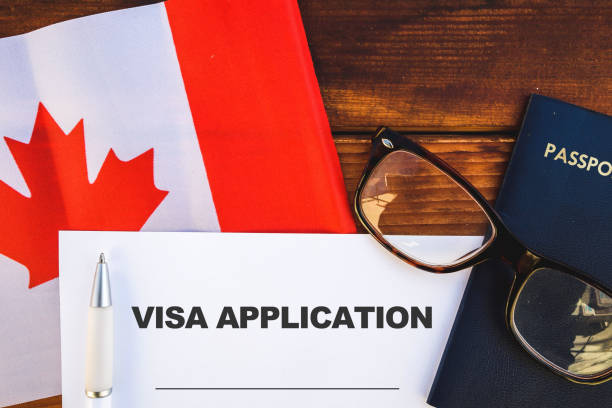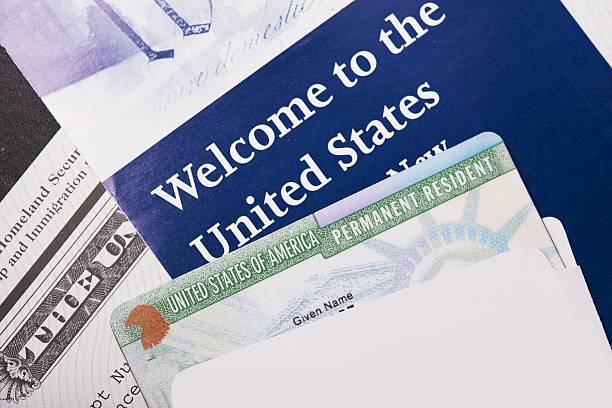Canadian Immigration Laws: What’s New?
Canada’s immigration system is one of the most robust in the world, and it’s constantly evolving to meet the nation’s economic, demographic, and social needs. Immigration plays a central role in Canada’s growth, supporting the economy and addressing workforce shortages, all while fostering a diverse and inclusive society.
With an updated set of immigration laws and policies, Canada has introduced a range of changes aimed at streamlining processes, enhancing opportunities for skilled professionals, supporting family reunification, and improving protections for temporary workers.
This article provides a thorough overview of the key updates in Canada’s immigration laws covering major changes to the Express Entry program, Provincial Nominee Programs (PNP), family sponsorship, and more.
Overview of Canadian Immigration Law Framework
Canada’s immigration system operates under the Immigration and Refugee Protection Act (IRPA), which defines the country’s immigration goals, regulations, and categories. The Immigration and Refugee Board (IRB) is responsible for processing applications, appeals, and cases related to immigration, including asylum seekers and refugees. Key pathways to Canadian residency and citizenship include:
- Express Entry: An application system for skilled workers using a points-based selection.
- Provincial Nominee Program (PNP): A program that allows provinces to nominate immigrants to meet local labor needs.
- Family Sponsorship: A program allowing Canadian citizens and permanent residents to sponsor family members.
- Temporary Foreign Worker Program (TFWP): A program for employers to hire foreign workers to address labor shortages.
The Canadian government adjusts these programs regularly to ensure alignment with national priorities. These updates focus on making the process faster, more inclusive, and adaptable to Canada’s diverse needs.

Key Changes to Immigration Laws
The updates introduce several changes aimed at optimizing immigration processes. Key changes include:
- Revised Express Entry eligibility criteria to attract more skilled workers in emerging fields.
- Expansion of Provincial Nominee Program (PNP) quotas, especially for smaller regions and communities.
- Simplified processes for family reunification, with faster processing times and expanded eligibility.
- Enhanced protections for temporary foreign workers, addressing healthcare, housing, and work conditions.
These changes reflect Canada’s focus on attracting a younger, skilled workforce, strengthening regional economies, and prioritizing family reunification.
Updated Express Entry Program
Changes to Eligibility and Points System
The Express Entry program, which allows skilled workers to apply for Canadian permanent residency through a points-based system, has undergone significant adjustments in 2024. The program’s Comprehensive Ranking System (CRS) has been revised to allocate more points for applicants in specific high-demand fields, such as technology, healthcare, and engineering. Other changes include:
- Additional points for French-speaking candidates to support the country’s bilingual goals.
- Increased age limit flexibility for certain categories to attract more skilled workers with experience.
New Occupations Added to Express Entry
Canada has added more occupations to the list of in-demand jobs eligible for Express Entry. This update aims to address skill gaps, particularly in technology and healthcare, encouraging professionals to consider immigrating to Canada.
Impact on Skilled Workers and International Graduates
These changes benefit skilled professionals and international graduates in Canada by improving their chances of receiving an invitation to apply (ITA) for permanent residency. Graduates who have Canadian work experience in fields such as data science, cybersecurity, and medical technology will find the new criteria advantageous.

Provincial Nominee Program (PNP) Updates
The Provincial Nominee Program (PNP) allows Canada’s provinces to nominate immigrants who meet specific labor needs. In 2024, many provinces are increasing their PNP quotas, focusing on sectors like technology, healthcare, and skilled trades.
New or Revised PNP Streams by Province
Several provinces have introduced new PNP streams or revised their criteria to attract skilled and unskilled workers. Notable updates include:
- Ontario: Expansion of its Human Capital Stream to include tech professionals.
- Alberta: Additional quotas for agriculture and manufacturing workers.
- Atlantic Provinces: Enhanced Atlantic Immigration Program (AIP) for rural labor shortages.
Changes to Language, Work Experience, and Education Requirements
Many provinces have reduced language requirements for specific roles, making PNPs more accessible to applicants with intermediate language skills. Other adjustments include relaxed work experience requirements and education criteria for in-demand roles, particularly in healthcare and social services.
Family Sponsorship and Reunification Updates
Family reunification is a core pillar of Canada’s immigration strategy, and recent changes aim to make the sponsorship process faster and more inclusive.
Updates to Family Sponsorship Process
In 2024, processing times for family sponsorship applications are expected to decrease due to digital advancements and optimized processing. The government has introduced a pilot program to speed up spousal and dependent children applications, with priority processing for those separated due to humanitarian concerns.
Expanded Eligibility for Dependents
Eligibility for dependents has broadened to include certain family members previously ineligible, such as siblings under 22 in specific cases. These updates reflect Canada’s commitment to keeping families together, particularly in cases where applicants may lack other support networks.
Temporary Foreign Worker Program (TFWP) Revisions
The Temporary Foreign Worker Program (TFWP) has introduced changes that affect both employers and workers.
LMIA and Health Standards Updates
The Labor Market Impact Assessment (LMIA) requirements have been adjusted to streamline the application process for sectors experiencing severe shortages, like agriculture and construction. New health and housing standards have been introduced to protect the well-being of foreign workers, particularly in physically demanding industries.
Improved Worker Protections
Temporary foreign workers in Canada will now have access to improved healthcare and housing protections. Employers are required to provide comprehensive health insurance, adequate housing, and ensure fair treatment in the workplace, reducing exploitation risks.
Student Visa and Post-Graduation Work Permit (PGWP) Updates
Canada’s student visa and Post-Graduation Work Permit (PGWP) programs have also seen adjustments in 2024.
Changes to Student Visa Requirements
International students seeking to study in Canada will benefit from reduced financial proof requirements and shorter processing times, making it easier for students from developing countries to pursue higher education in Canada.
Post-Graduation Opportunities for Work Permit Holders
International graduates on PGWPs now have more pathways to transition to permanent residency, especially in sectors like AI, engineering, and health sciences. The revised rules favor international students with Canadian credentials and work experience, facilitating their transition to the Canadian workforce.
Refugee and Asylum Seeker Policy Changes
Canada’s refugee system aims to provide safe harbor for those fleeing conflict or persecution. In 2024, the following changes apply:
Streamlined Application Processing
Refugee application processes have been streamlined to reduce waiting times and ensure efficient support for asylum seekers. Canada has also increased partnerships with international organizations to expedite the transfer and integration of refugees.
New Resources for Asylum Seekers
Additional resources have been allocated to support the integration of refugees, including language training, mental health support, and job readiness programs. Canada is prioritizing vulnerable groups, such as women and children, ensuring their transition to a safe and stable environment.
Pathways to Permanent Residency: New Routes and Simplified Processes
Canada continues to innovate by creating new pathways for permanent residency. In 2024, several new programs are available:
Introduction of New Regional Programs
Regional programs are being introduced to encourage immigration to smaller communities and rural areas. These programs offer faster processing times and additional points for applicants willing to settle in less-populated regions.
Simplified Application Processes
Canada has implemented digital improvements in application processes, reducing paperwork and speeding up processing times for permanent residency applications. Applicants now benefit from online tools that provide real-time updates on their application status.

Additional Policy Changes and Future Prospects
Canada’s immigration framework has seen several other updates, including:
- Enhanced Biometric Requirements: Expanded biometric requirements for more immigrant categories to improve security.
- Updated Medical Standards: New health examination guidelines to streamline health-related eligibility checks.
- Future Prospects: Canada’s immigration policy trends indicate a continued focus on regional development, family reunification, and attracting young talent in tech and healthcare.
Conclusion
The changes to Canadian immigration laws in 2024 reflect the country’s commitment to inclusivity, economic growth, and family reunification. With a focus on faster processing times, simplified applications, and expanded pathways for both skilled and unskilled workers, these updates provide numerous opportunities for individuals worldwide. Prospective immigrants can look forward to a more streamlined process, improved protections, and broader access to Canada’s growing labor market.
Frequently Asked Questions
Q: What changes have been made to the Express Entry program in 2024?
A: In 2024, the Express Entry program has adjusted its points system, adding more points for candidates in tech and healthcare fields. French-speaking applicants also receive additional points to support Canada’s bilingual objectives.
Q: Are there new pathways to permanent residency in Canada?
A: Yes, Canada has introduced regional programs to attract immigrants to smaller communities, along with streamlined processes for existing PR routes.
Q: Has family sponsorship become easier in 2024?
A: Yes, the family sponsorship process has been optimized with shorter processing times and expanded eligibility criteria, particularly for spouses and dependent children.
Q: What protections are now in place for temporary foreign workers?
A: Temporary foreign workers benefit from improved housing standards, mandatory health insurance provided by employers, and enhanced workplace protections to prevent exploitation.


